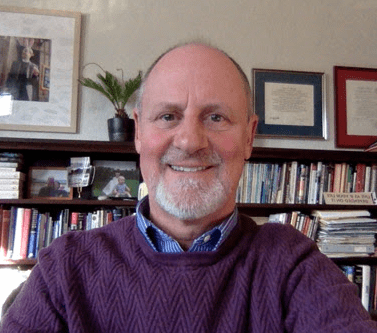Come thou long-expected Jesus, born to set thy people free, from our fears and sins release us…
Charles Wesley
Dear Friends in Christ,
Lent and Good Friday make sense to our day and time. Not enough electricity in Kiev. No meat or chocolate quite often. An evil ruler (and in scripture, an evil Governor, too…) who will deny those in need basic human rights, even in places of bounty. That spring season rings true to our life experience.
Of course Advent has Herod and the unwelcoming inn and the suspicion of wise ones (foreigners) from what is now the Middle East and Asia. Advent has refugees traveling a distance to address paperwork and then hiding out in Africa. Those bits still ring true to our day and time.
But then Christmas brings a change. It asks us to behold something that even scripture considers inconceivable. Christmas draws us way beyond a close encounter of the third kind. It gives us the closest encounter of the holy kind, with a twist: It asserts that our story begins in vulnerability and humanity and history. The notion that an infant can be the Prince of Peace or can set people free is stunningly far-fetched, and the claim that this speck of God-with-us can release us from fear—release us from the webs called sin (racism, homophobia, economic inequality, sexism—just to name some of the ones in scripture)—this claim steps beyond far-fetched to impossible. Lent makes sense on some level. Christmas is nonsensical if not impossible, on some level.
But Christmas is not about how we make sense of the universe. It is about how God does. And if we “behold” here and there this Advent, its light can shine into our darkness, and spread.
Mary was surprised—very surprised, once upon a time. Is there something surprising about Advent and Christmas for us this year?
Joseph was unsure what to do about the shock of God’s action. It’s OK for us to be shocked by God’s ways and take time to find how Christmas changes us, too.
Some people (Magi, shepherds, others) “get it” and love it and share it. Christmas makes sense in unexpected quarters. Can we learn from them?
Or, can we keep it simple? At Christmas love is born. At Christmas hope, peace, and joy are lights in the darkness. At Christmas we give and receive gifts. At Christmas we feed each other and we are fed by (what one scholar calls) “the holy other.”
If you have a minute and a computer find Nina Simone’s Freedom Song and listen to it. Or, search the words “Ukraine & Freedom” together. There are numerous hits. These both have very practical, Christmas-like inspiration. Indeed, about forty years after the first Christmas Paul of Tarsus wrote, “For freedom Christ has set us free.” He adds that we should stand firm and accept no other yokes: no other enslavement or tyranny for ourselves or for others.
So in the end, Lent is real, Advent is real, but the freedom of Christmas is absolutely essential to our own real being, and to everyone around the world. This may seem impossible to believe, but—again—it’s not about what we do with the universe. It’s what God is doing with new life. So, come thou long-expected Jesus. In vulnerability and humanity and history. It’s just possible that this year we need you most of all.
See you to sing, pray, share in missions, and spread candlelight on Christmas Eve.
God bless you all,



It is what God is doing not what we are doing. If there is no connection it does not exist Behold assumes a connection. The issue here is disconnect why the child. The virgin birth is both true and not true at the same time. Does something always have to be physical fact in order to be real and true? Eliminate the word physical and the conflict ends. There is truth in the different aspects in the academy there is a truth and reality in science as there is in religion, different departments